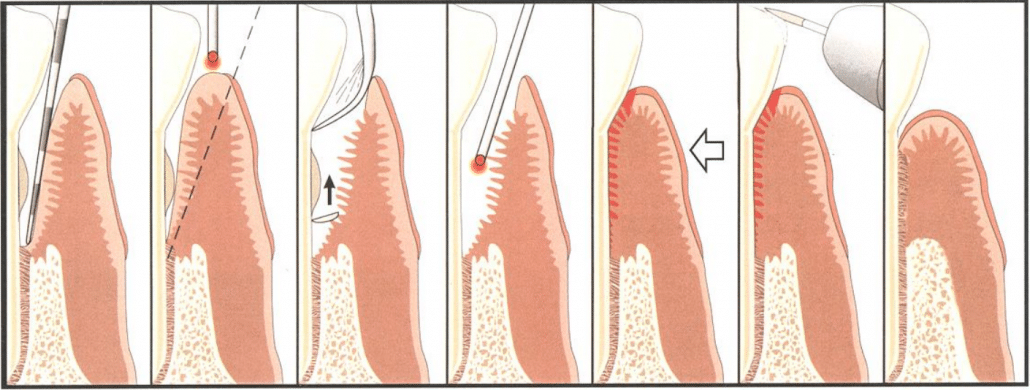Periodontal disease is a common condition that affects the tissues surrounding the teeth. The early stage of periodontal disease is called gingivitis and is characterized by tender, swollen gums that may bleed during brushing and flossing. Periodontal disease is a progressive condition that usually affects older people, although it can occur at any age when poor dental hygiene has been a part of the picture. Fortunately, it’s largely preventable if it is caught in time, and effective treatments are available.
Risk Factors for Periodontal Disease
Besides age and poor dental hygiene, those with Type II diabetes, the use of oral contraceptives, pregnancy, crooked teeth, and fillings that have fallen all the way or part of the way out of where they were placed. Those who smoke or chew tobacco products on a regular basis are at higher risk of developing periodontal disease.
Traditional Treatments for Periodontal Disease
When periodontal disease is detected in its early stages, it can usually be stopped in its tracks by careful hygienic practices. Proper brushing and flossing at least twice per day is essential if gingivitis is going to be reversed. Patients should also rinse their mouths after eating or drinking if they are not able to brush at that time. Your dentist may advise you to avoid certain types of foods and beverages, such as those containing high amounts of sugars and starches or anything that is sticky, such as hard candy. Drinking beverages through a straw helps cut down on the contact they have with dental tissues and may be recommended for those who routinely drink soda, certain types of juice, and coffee or tea that contains sugar or honey.
Your dentist may also recommend using an oral irrigator and rinsing your mouth thoroughly with an antibacterial mouthwash twice a day.
Full-blown periodontal disease has been traditionally more difficult to treat than gingivitis. Treatment often involves something known as scaling and planing. Scaling is a procedure designed to remove plaque deposits from the surface of the teeth, including below the gum line, and planing is a process that smooths out the rough areas on and around the roots, which helps ensure that bacterial growth won’t become lodged in ridges and other uneven surface features. Because periodontal disease is essentially an infection, some patients may benefit from taking oral antibiotics.
Treatment for advanced periodontal disease includes a procedure called flap surgery and bone and tissue grafts. Flap surgery entails lifting the gum tissue so that underlying bacterial deposits can be removed. Bone and tissue grafts are used to regenerate tissue that has been destroyed as a result of the disease.
Laser Periodontal Therapy
Laser technology has recently been developed that offers patients suffering from periodontal disease an alternative to traditional treatments. Laser therapy involves less time than its conventional counterparts, is minimally invasive, and doesn’t require as many post-procedure visits to your dentist’s office. Because laser therapy also doesn’t cause vibrations in the mouth or generate heat, many patients find it more comfortable and less anxiety-producing. Even in those cases where surgery is advised, laser therapy can lessen after-the-fact swelling and discomfort.
Laser periodontal therapy is often so effective that it circumvents the need for surgical procedures altogether. Dr, Mentz offers an FDA-approved laser procedure known as Deep Pocket Procedure that works well on periodontal disease that has progressed to moderate or advanced stages.
Dr. Metz believes he can serve his patients best by taking care to keep up with the cutting edge of dental technology. He earned his doctorate degree in dental surgery from Case Western Reserve University in 1987 and has since become an established expert in the treatment of periodontal disease.
We have offices in three locations to ensure the optimal convenience for our customers. Please don’t hesitate to reach out to our office at your earliest convenience if you suspect you may be suffering from any stage of periodontal disease.


